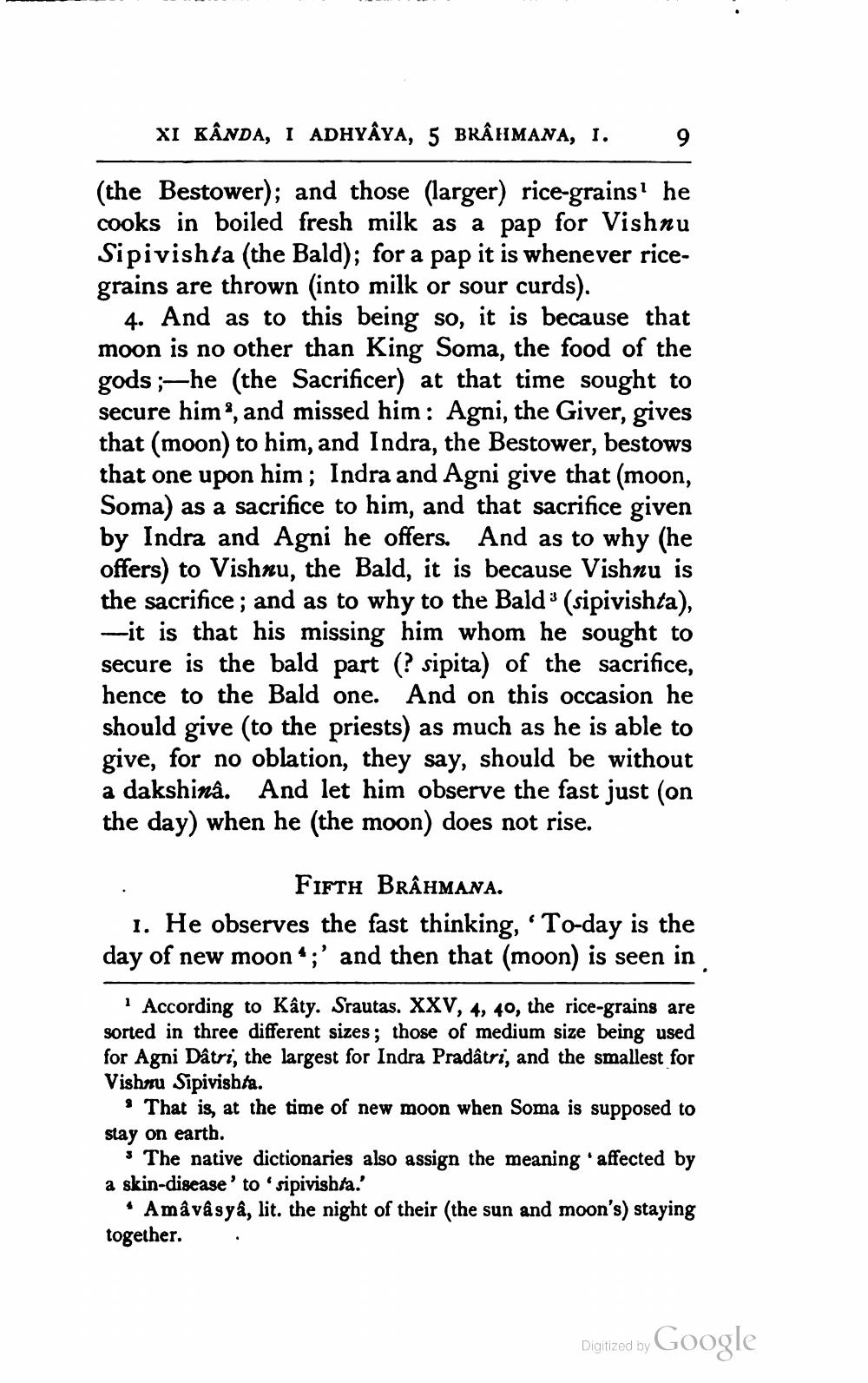________________
XI KÂNDA, I ADHYAYA, 5 BRÂHMANA, 1.
9
(the Bestower); and those (larger) rice-grains! he cooks in boiled fresh milk as a pap for Vishnu Sipivishta (the Bald); for a pap it is whenever ricegrains are thrown into milk or sour curds).
4. And as to this being so, it is because that moon is no other than King Soma, the food of the gods ;—he (the Sacrificer) at that time sought to secure him, and missed him: Agni, the Giver, gives that (moon) to him, and Indra, the Bestower, bestows that one upon him; Indra and Agni give that (moon, Soma) as a sacrifice to him, and that sacrifice given by Indra and Agni he offers. And as to why (he offers) to Vishnu, the Bald, it is because Vishnu is the sacrifice; and as to why to the Bald (sipivishta),
-it is that his missing him whom he sought to secure is the bald part (? sipita) of the sacrifice, hence to the Bald one. And on this occasion he should give (to the priests) as much as he is able to give, for no oblation, they say, should be without a dakshink. And let him observe the fast just on the day) when he (the moon) does not rise.
FIFTH BRÂHMANA. 1. He observes the fast thinking, 'To-day is the day of new moon *;' and then that (moon) is seen in
According to Kâty. Srautas. XXV, 4, 40, the rice-grains are sorted in three different sizes; those of medium size being used for Agni Dâtri, the largest for Indra Pradâtri, and the smallest for Vishnu Sipivishta.
That is, at the time of new moon when Soma is supposed to stay on earth.
3 The native dictionaries also assign the meaning affected by a skin-disease' to 'sipivishta.'
• Amâvâ syâ, lit. the night of their (the sun and moon's) staying together.
Digitized by Google




